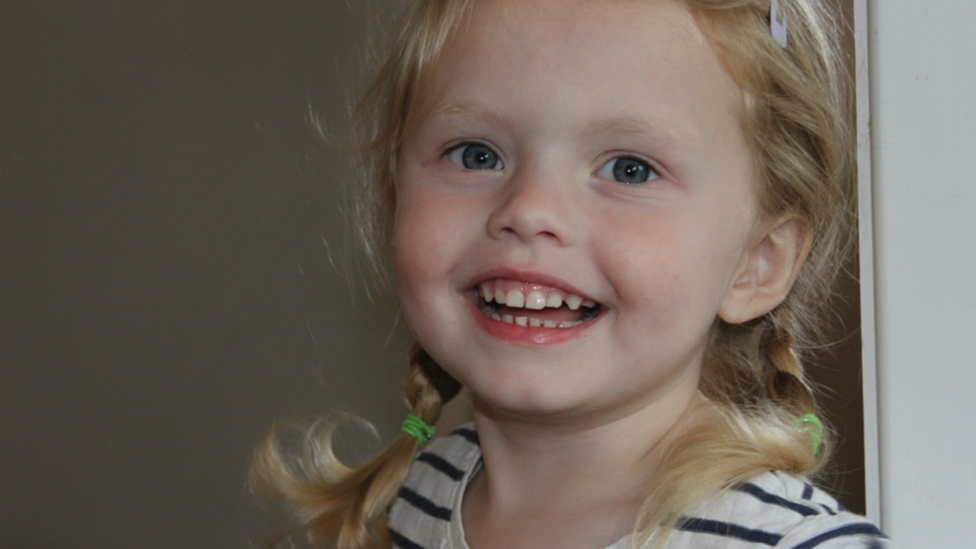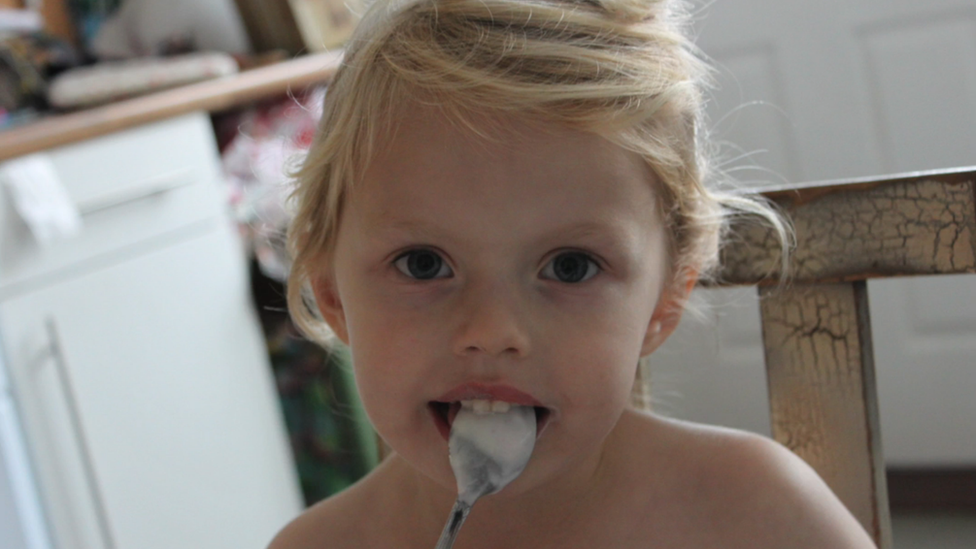Prescription delayed to child with sepsis fearing kidney damage
- Published

Coco Bradford was described by her family as "beautiful, brave and strong"
Doctors treating a six-year-old who died of sepsis delayed prescribing antibiotics for fear of worsening her chronic kidney condition.
Coco Rose Bradford died in 2017 after being admitted to hospital with severe vomiting and diarrhoea.
A 2018 independent inquiry found opportunities were missed to change her course of treatment.
A doctor has told an inquest she would "always question" whether Coco's life would have been saved.
Dr Laura Guilder, who was the registrar on the night shift at Royal Cornwall Hospital (RCH) when Coco was first referred to the paediatric ward on 26 July 2017, said Coco had a working diagnosis of bacterial gastroenteritis.
She told an inquest in Truro that Coco had a raised heart rate and was "bordering on shock", so close attention was paid to her fluid levels to ensure adequate blood flow to her organs.
Dr Guilder said she had been "cautious and measured" in her approach to delivering intravenous fluids, for fear the patient could develop kidney problems.
However, she said she knew the patient was at risk of developing haemolytic uraemic syndrome (HUS) - a rare condition triggered by E.coli that causes the destruction of red blood cells.
Dr Gilder said that by the end of her shift, Coco's condition had improved, adding that when she returned the following evening the child seemed "brighter" and had no symptoms of sepsis.

Coco Rose Bradford's temperature reached 39.2C during her illness
The inquest heard that antibiotics can facilitate the development of HUS, but that they might still be considered depending on advice from specialists.
Dr Guilder said due to the child's ongoing raised heart rate and temperature, senior colleagues had said antibiotics should be considered if there was no evidence of HUS overnight.
However, at 11:00 BST the next day, tests revealed Coco's blood cells were fragmenting.
Dr Gilder said the reason antibiotics were not administered was there were concerns about worsening the HUS.
"We would have been happy to give them if the renal team felt it would not make it worse, but they couldn't give me that assurance and they wanted to discuss it with a consultant," she said.
She said "looking back" she would always ask herself why she had not chased up the renal team for an answer about the antibiotics when she had not had a response within a couple of hours.
Coco was transferred to Bristol Children's Hospital on 28 July but died three days later from multi-organ failure and E. coli.
Dr Guilder added that she would "always question" whether Coco's life would have been saved if antibiotics had been prescribed earlier, but at that point her kidney condition rather than sepsis was the primary concern.
She said that the possibility of sepsis had been considered "at all points" in Coco's treatment.
The inquest continues.

Follow BBC News South West on Twitter, external, Facebook, external and Instagram, external. Send your story ideas to spotlight@bbc.co.uk, external.
- Published29 November 2021

- Published26 October 2018
